Find Help
More Items From Ergsy search
-
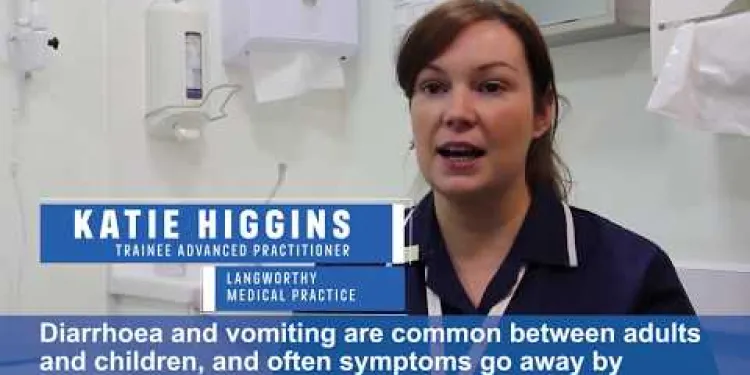
Advice for diarrhoea and vomiting
Relevance: 100%
-
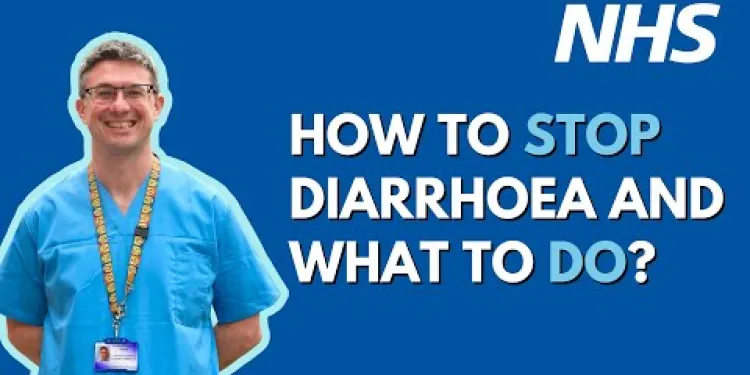
Diarrhoea - How to stop it? | UHL NHS Trust
Relevance: 92%
-
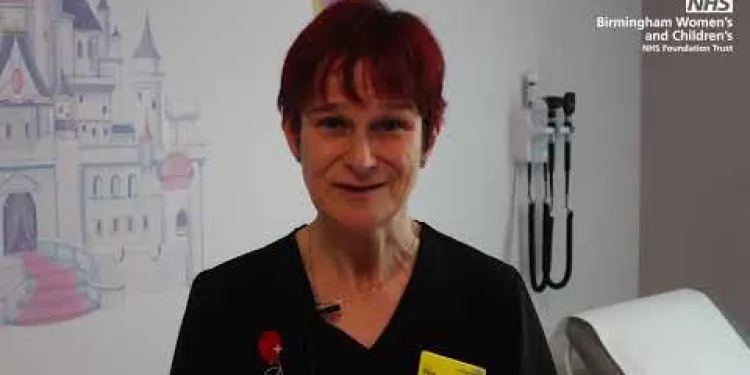
My child has vomiting and diarrhoea - what do I do?
Relevance: 89%
-
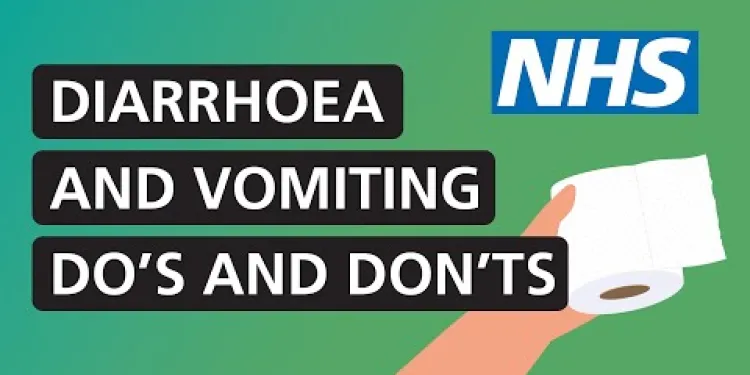
How to treat diarrhoea and vomiting at home (adults and children aged 5 and over) | NHS
Relevance: 79%
-
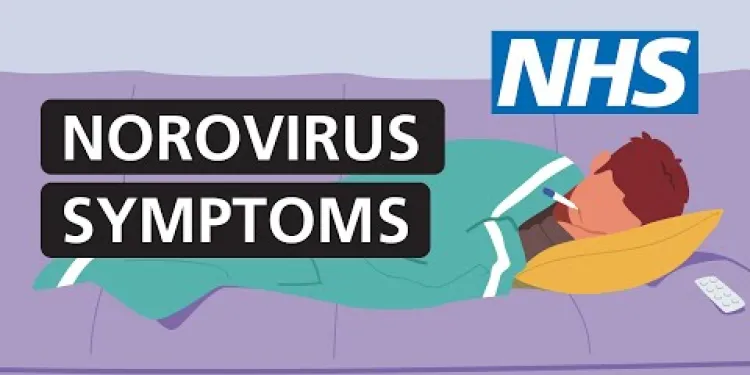
What is norovirus? (Diarrhoea and vomiting bug) | NHS
Relevance: 72%
-
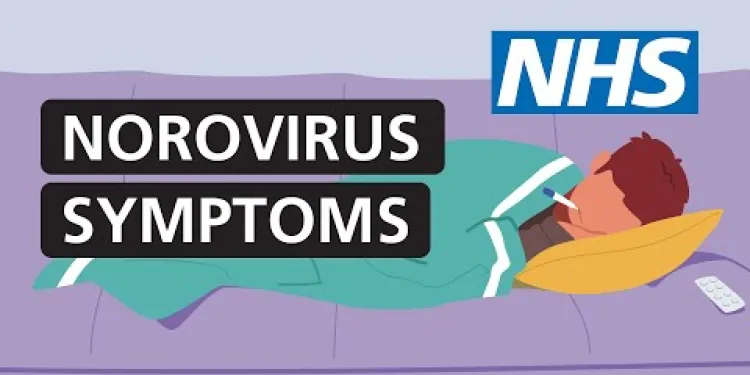
What is norovirus? (Diarrhoea and vomiting bug) | NHS
Relevance: 68%
-

What are common side effects of Wegovy?
Relevance: 33%
-

What are common side effects of antibiotics?
Relevance: 32%
-
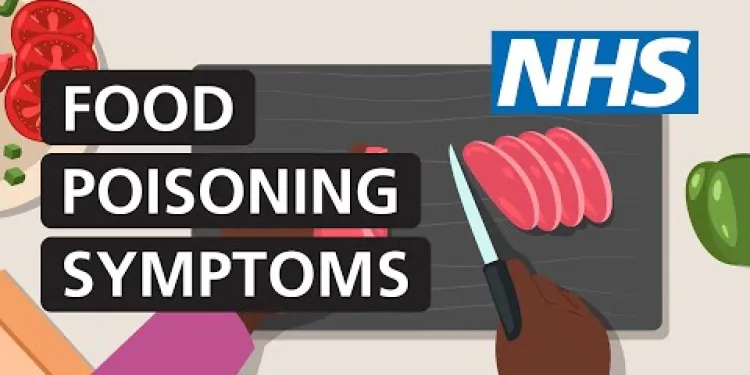
How to tell if you have food poisoning (symptoms) | NHS
Relevance: 32%
-
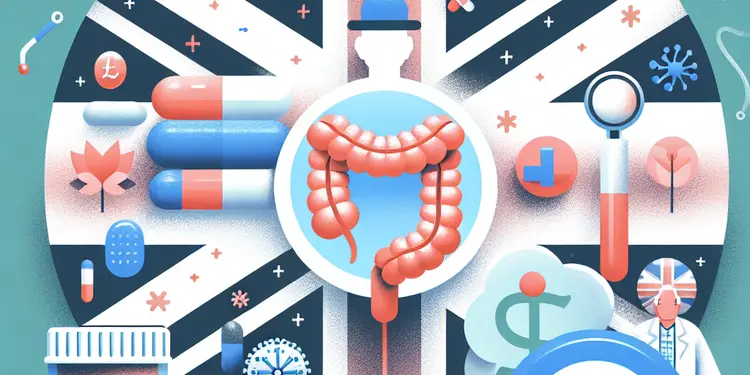
How do antibiotics affect gut health, especially in older adults?
Relevance: 32%
-

What are common side effects of CBD?
Relevance: 30%
-

Are there any gastrointestinal side effects from weight loss medications?
Relevance: 29%
-
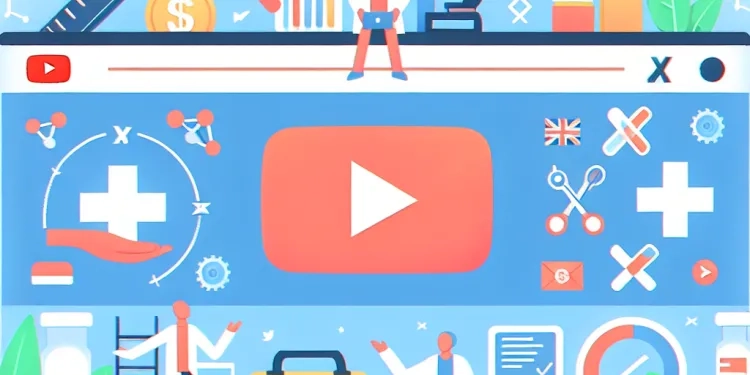
Can measles cause complications?
Relevance: 28%
-

What are the common symptoms of Crohn's disease?
Relevance: 27%
-

What are common side effects of Ozempic?
Relevance: 27%
-

What are the common side effects of Ozempic?
Relevance: 27%
-

Are there any common side effects of Mounjaro?
Relevance: 27%
-

What are the common symptoms of appendicitis?
Relevance: 26%
-

What complications can arise from measles?
Relevance: 26%
-

What are the symptoms of measles?
Relevance: 25%
-
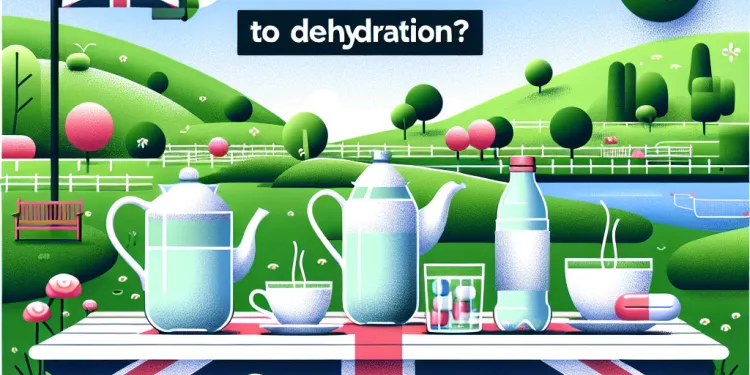
Can Ozempic lead to dehydration?
Relevance: 25%
-
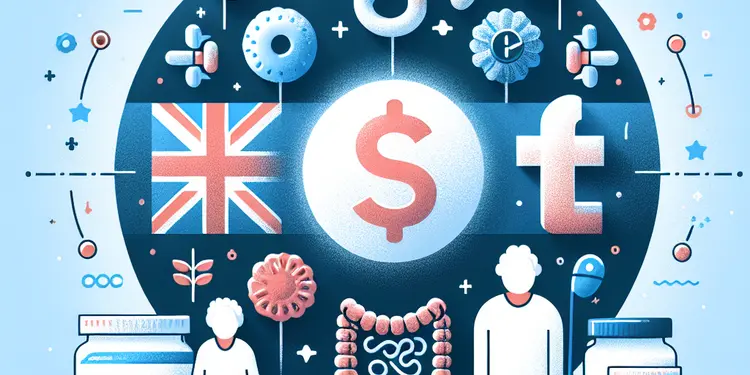
Are probiotics beneficial for gut health in older adults?
Relevance: 25%
-

What are the symptoms of norovirus?
Relevance: 24%
-
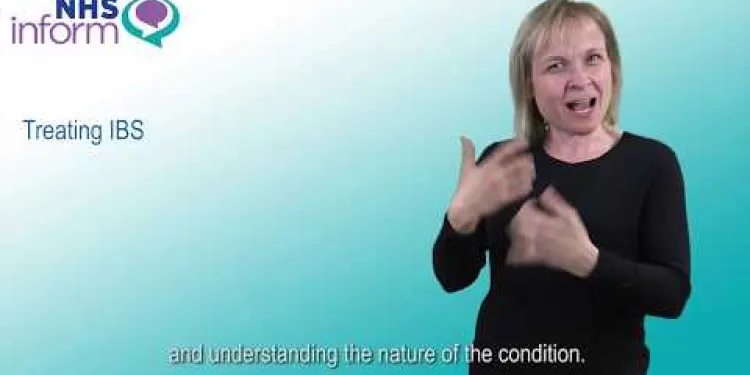
Treating irritable bowel syndrome (IBS)
Relevance: 24%
-

Dealing with Common Childhood Illnesses
Relevance: 24%
-

Can E. coli infections be treated?
Relevance: 24%
-
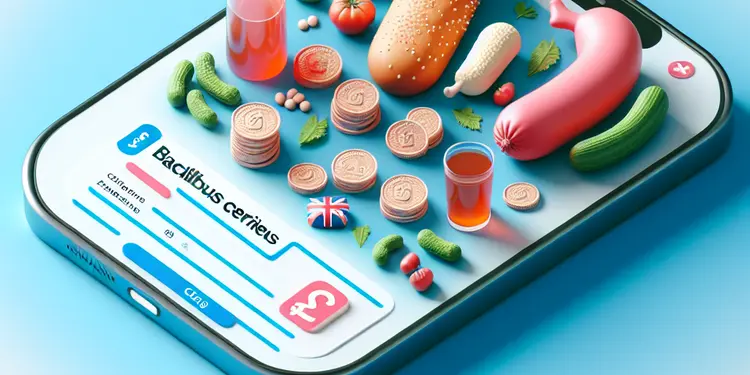
What are the symptoms of Bacillus cereus food poisoning?
Relevance: 23%
-

Can E. coli cause illness?
Relevance: 23%
-

What is irritable bowel syndrome (IBS)?
Relevance: 23%
-

What is E. coli?
Relevance: 23%
-

Can antibiotics treat norovirus?
Relevance: 22%
-
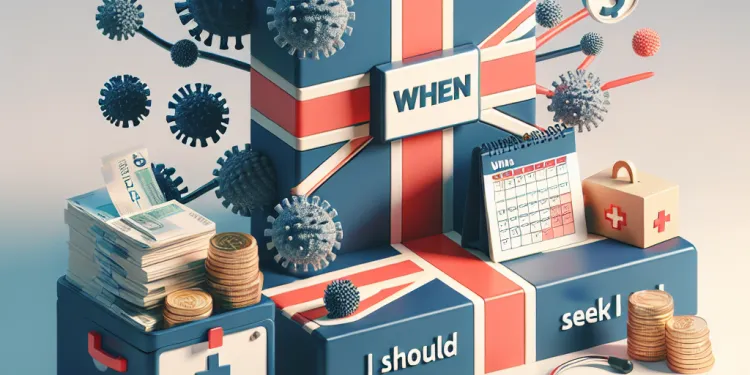
When should I seek medical advice for norovirus?
Relevance: 22%
-
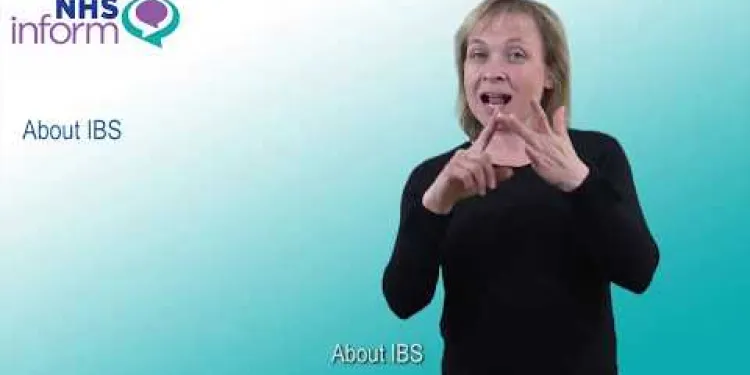
About irritable bowel syndrome (IBS)
Relevance: 22%
-
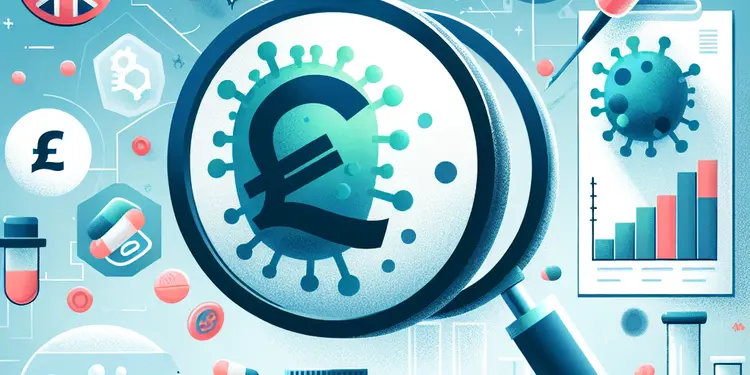
How is E. coli infection diagnosed?
Relevance: 22%
-

What is irritable bowel syndrome (IBS)?
Relevance: 22%
-

Can Ozempic cause severe gastrointestinal issues?
Relevance: 22%
-
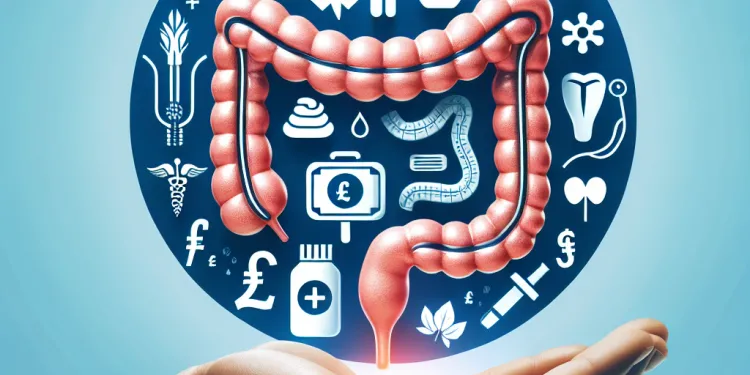
What are the side effects of bowel cancer treatment?
Relevance: 21%
-

What problems is Ozempic known to cause?
Relevance: 21%
-
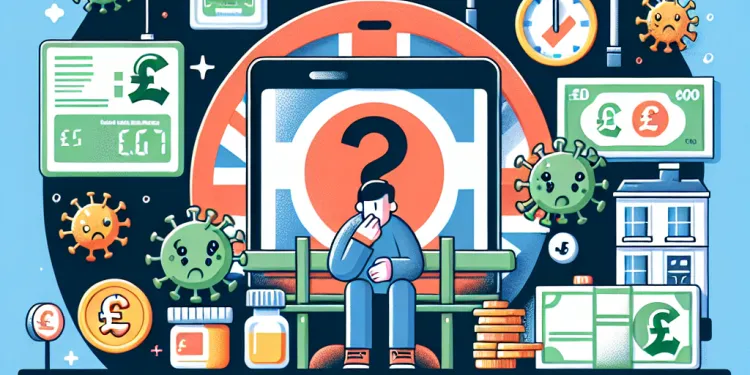
What should I do if I have norovirus?
Relevance: 21%
-
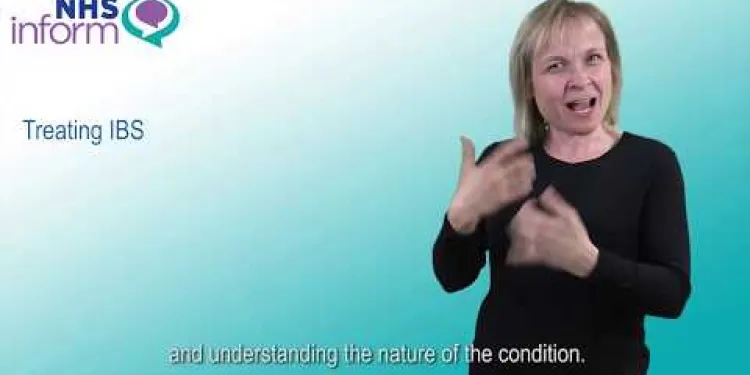
Treating irritable bowel syndrome (IBS)
Relevance: 21%
Diarrhoea - How to Stop It? #Shorts | UHL NHS Trust
Understanding Diarrhoea
Diarrhoea is characterized by frequent, loose, or watery stools. It can be caused by various factors including infections, food intolerances, and chronic conditions like IBS. Understanding its cause is crucial in managing symptoms efficiently.
Immediate Steps to Take
When experiencing diarrhoea, it’s essential to stay hydrated. Drink plenty of fluids like water, oral rehydration solutions, and clear broths. Avoid caffeinated beverages and alcohol as they can worsen dehydration.
Adjust Your Diet
Eating right can help manage diarrhoea. Opt for bland, easy-to-digest foods such as bananas, rice, applesauce, and toast, commonly known as the BRAT diet. These foods can help firm up your stools and replace lost nutrients.
Medications and Over-the-Counter Solutions
Over-the-counter medications like loperamide (Imodium) can reduce symptoms by slowing down bowel movements. However, always consult your pharmacist or healthcare provider before taking any medication, especially if you have underlying health issues.
When to See a Doctor
Consult a healthcare professional if diarrhoea persists for more than a few days, is accompanied by severe pain, fever, or blood in the stools. Chronic diarrhoea could indicate a more serious condition that requires professional medical attention.
Preventing Diarrhoea
Good hygiene practices can prevent diarrhoea. Wash your hands frequently with soap and water, especially after using the toilet and before eating. Ensure food is cooked thoroughly and avoid drinking untreated water.
Support from UHL NHS Trust
The University Hospitals of Leicester NHS Trust offers extensive resources and support for managing diarrhoea. For more information and personalised advice, consult your local healthcare provider or visit the UHL NHS Trust website.
Diarrhoea - How to Stop It?
What is Diarrhoea?
Diarrhoea means having loose or watery poo often. It can happen for different reasons like infections or certain foods that upset your tummy. Knowing why it happens can help you feel better.
What to Do Right Away
When you have diarrhoea, drink lots of water. This stops you from getting too thirsty. Water, special drinks called oral rehydration solutions, and clear broths are good to drink. Don't drink coffee or alcohol because they can make you more thirsty.
Change What You Eat
Eating certain foods can help you feel better. Try bland foods like bananas, rice, applesauce, and toast. These foods are part of the BRAT diet and can make your poo firmer and give back some nutrients that you lost.
Medicines You Can Use
You can take medicines like loperamide (Imodium) from the pharmacy to help stop diarrhoea. These slow down your tummy. Always ask a pharmacist or doctor if you are unsure about taking a medicine, especially if you are already not well.
When to Go to the Doctor
If diarrhoea lasts more than a few days, or if you have bad pain, a fever, or blood in your poo, see a doctor. This can mean something more serious is wrong, and you need a doctor to help you.
How to Stop Diarrhoea from Happening
Washing your hands with soap and water can help stop diarrhoea. Do this a lot, especially after using the toilet and before eating. Make sure your food is cooked well and do not drink water that might not be clean.
Help from UHL NHS Trust
At University Hospitals of Leicester NHS Trust, there are lots of resources to help with diarrhoea. For more info and to get advice made just for you, talk to your local healthcare provider or visit the UHL NHS Trust website.
Frequently Asked Questions
What are common causes of diarrhoea?
Common causes of diarrhoea include infections such as gastroenteritis, food poisoning, certain medications, and underlying conditions like irritable bowel syndrome (IBS).
How can I stop diarrhoea at home?
To stop diarrhoea, stay hydrated by drinking plenty of fluids. Oral rehydration solutions are particularly effective. Avoid dairy, fatty foods, and caffeinated beverages. Eat bland foods like bananas, rice, applesauce, and toast (the BRAT diet).
When should I see a doctor for diarrhoea?
Consult a doctor if diarrhoea persists for more than a few days, if you experience severe pain, high fever, signs of dehydration, or blood in your stool.
What are over-the-counter medications for diarrhoea?
Over-the-counter medications like loperamide (Imodium) can be used to reduce diarrhoea symptoms. Always follow the instructions and consult with a pharmacist if unsure.
Can probiotics help with diarrhoea?
Probiotics may help restore the balance of bacteria in your gut and can be beneficial in managing diarrhoea, especially after taking antibiotics.
Is it safe to continue eating while having diarrhoea?
Yes, it is safe to eat. Focus on light, easy-to-digest foods. The BRAT diet can be helpful, which includes bananas, rice, applesauce, and toast.
How can I prevent dehydration during an episode of diarrhoea?
To prevent dehydration, drink plenty of clear fluids, oral rehydration solutions, or electrolyte drinks. Avoid caffeine and alcohol as they can exacerbate dehydration.
Should I avoid any foods while having diarrhoea?
Yes, avoid dairy products, fatty and fried foods, spicy foods, and caffeinated beverages. These can aggravate diarrhoea and make symptoms worse.
Can stress cause diarrhoea?
Yes, stress and anxiety can cause or exacerbate diarrhoea by affecting gut motility and secretion.
What liquids are best for staying hydrated during diarrhoea?
The best liquids for hydration include water, clear broths, oral rehydration solutions, and diluted fruit juices. Avoid sugary drinks, caffeine, and alcohol.
Is diarrhoea contagious?
Diarrhoea caused by infections, such as viral or bacterial gastroenteritis, can be contagious. Practice good hygiene, such as thorough handwashing, to prevent spreading the infection.
Can certain medications cause diarrhoea?
Yes, certain medications like antibiotics, antacids containing magnesium, and chemotherapy drugs can cause diarrhoea as a side effect.
What should I do if my child has diarrhoea?
Ensure your child stays hydrated with oral rehydration solutions. Avoid sugary drinks and offer bland, easy-to-digest foods. Consult a doctor if symptoms persist or worsen, or if there are signs of dehydration.
What are signs of dehydration to look out for?
Signs of dehydration include dry mouth, excessive thirst, infrequent urination, dark-coloured urine, fatigue, dizziness, and in severe cases, confusion. Seek medical attention if you or someone else shows these symptoms.
Can food poisoning cause diarrhoea?
Yes, food poisoning is a common cause of acute diarrhoea. It typically occurs after consuming contaminated food or water. Symptoms usually include vomiting, stomach cramps, and diarrhoea.
What can make you have runny poo?
Diarrhea can happen because of different reasons. Some common ones are:
- Infections like tummy bugs.
- Eating food that has gone bad.
- Some medicines.
- Health problems like irritable bowel syndrome (IBS).
If you need help, you can use tools like picture cards or ask someone to explain things to you. It's also good to talk with a doctor if you have questions.
How can I make a runny tummy better at home?
When you have diarrhoea, drink lots of water. This helps you stay healthy. Special drinks like oral rehydration solutions are very good. Do not eat dairy foods like milk and cheese. Stay away from fatty foods and drinks with caffeine. Eat simple foods like bananas, rice, applesauce, and toast. This is called the BRAT diet.
When should I see a doctor for diarrhoea?
If you have diarrhoea, you might wonder when to see a doctor. Here’s how to decide:
- Diarrhoea lasts more than 2 days.
- You start to feel very weak and tired.
- There is blood in your poo.
- You get a high fever.
- You have lots of tummy pain.
If you see any of these signs, tell a grown-up and see a doctor. You can also use picture charts to help understand symptoms better.
See a doctor if you have runny poo for more than a few days. You should also see a doctor if you have bad tummy pain, a high fever, feel very thirsty and tired, or if there is blood in your poo.
Medicines You Can Buy for Diarrhoea
You can use medicine called loperamide (Imodium) to help stop a runny tummy. This medicine is easy to buy from a shop. Always read the directions and ask a pharmacist if you have questions.
Can probiotics help with runny poo?
Do you have runny poo? This is called diarrhoea.
Some people use probiotics to help when they have runny poo. Probiotics are tiny good bugs that live in your tummy.
The good bugs can make your tummy feel better.
If you have runny poo, talk to a grown-up or a doctor. They can tell you if probiotics might help you.
You can also try:
- Drinking lots of water
- Eating easy-to-digest foods like bananas and rice
- Resting so your body can get better
Probiotics can help make the bacteria in your tummy better. They are good for stopping diarrhoea, especially if you have taken medicine like antibiotics.
Is it okay to eat when you have diarrhoea?
Yes, it is usually okay to eat. Eating helps give your body energy to get better.
Here are some tips:
- Eat simple foods like bananas, rice, applesauce, and toast.
- Drink lots of water to stay hydrated.
- Try eating small meals throughout the day.
If you feel unsure, you can ask a grown-up or a doctor for help.
Yes, it is safe to eat. Try eating light and easy foods. You can try the BRAT diet. This means eating bananas, rice, applesauce, and toast.
How to stop losing too much water when you have diarrhea
Diarrhea means you go to the toilet a lot and can lose water. Here are some ways to stay healthy:
- Drink water: Sip water often. You can also drink juice or clear soup.
- Use oral rehydration solutions: These are drinks you can get from a pharmacy. They help put back water and salts in your body.
- Eat salty snacks: Things like crackers or pretzels can help keep salt in your body.
- Avoid certain drinks: Do not drink coffee or soda. They can make you lose more water.
Ask for help if you feel very tired or dizzy. You can talk to a doctor or a nurse.
To stop your body from getting too dry, drink lots of clear drinks like water. You can also have special drinks called oral rehydration solutions or electrolyte drinks. Don't drink caffeine and alcohol. These drinks can make your body lose water faster.
What foods should I not eat if I have diarrhoea?
If you have diarrhoea, it is important to be careful with what you eat. Some foods can make it worse. Try not to eat:
- Spicy foods
- Greasy or fried foods
- Dairy products like milk and cheese
- Sweets like candy and cake
- Raw fruits and vegetables
Instead, try to eat:
- Bland foods like rice, toast, or bananas
- Drink plenty of water
Eating these foods can help your tummy feel better.
Using a picture dictionary or asking someone you trust can help if you find this difficult.
Yes, you should stay away from milk and cheese, greasy and fried foods, spicy foods, and drinks with caffeine. These can make diarrhoea worse.
Can stress make you have runny poo?
Yes, feeling stressed or worried can make you have runny poop. This happens because stress and worry change how your tummy works.
What drinks help you stay healthy when you have diarrhoea?
When you have diarrhoea, it is important to drink the right things.
Here are some drinks that can help:
- Water: Drink lots of water.
- Oral rehydration solutions: These are special drinks from the pharmacy that help you feel better. They have the right mix of salt and sugar.
- Clear soups: Warm, clear soups are good for you.
- Electrolyte drinks: Some sports drinks can help, but not all. Choose ones that are low in sugar.
Remember:
- Avoid drinks with lots of sugar, like soda, because they can make you feel worse.
- Too much caffeine or alcohol is not good either.
If you are not sure, talk to a doctor or ask someone you trust for help.
The best drinks to stay hydrated are water, clear soups, special drinks that help with hydration, and fruit juice with some water added. Stay away from sugary drinks, things with caffeine, and alcohol.
Can you catch diarrhoea from someone else?
Diarrhoea can spread to other people if it is caused by germs like viruses or bacteria. These germs can make your tummy hurt. You can help stop it from spreading by washing your hands very well.
Can some medicines make you have runny poo?
Yes, some medicines can make you have diarrhea. These include antibiotics, antacids with magnesium, and medicines for cancer treatment.
Here are some tips that might help:
- Ask a doctor or nurse if there are other medicines you can try.
- Drink plenty of water to stay hydrated.
- Eat foods that are easy on your tummy, like bananas or rice.
- There are apps and tools that can read text aloud to you, like screen readers. These can be helpful if reading is tricky.
What to do if your child has diarrhea
If your child has diarrhea, here are some simple steps you can follow:
- Make sure your child drinks lots of water. This helps stop dehydration, which means losing too much water from the body.
- Give your child bland foods like rice, toast, or bananas. These foods are gentle on their tummy.
- If the diarrhea does not get better in a day or two, call or visit your doctor to ask for advice.
- You can also ask a pharmacist for advice on special drinks or medicines that are safe for children.
- Keep your child clean and change their clothes if they get messy.
- You can use picture cards to help explain things to your child if they have trouble understanding words.
These steps can help your child feel better.
Make sure your child drinks plenty of special drinks to stay hydrated. Do not give them sugary drinks. Give them plain, simple foods that are easy to eat. See a doctor if your child does not get better, gets worse, or shows signs of not having enough water.
What are signs of dehydration to look out for?
Dehydration is when your body doesn't have enough water. Here are signs to watch for:
- Feeling very thirsty
- Dry mouth or lips
- Tiredness
- Less need to go to the toilet
- Darker pee than usual
- Feeling dizzy or lightheaded
It can help to drink little sips of water often. You can set a timer to remind you to drink water. Getting an adult to help can also be a good idea.
When you don't have enough water, your body gives you signs. Some signs are:
- A dry mouth
- Being really thirsty
- Not going to the toilet much
- Peeing a dark color
- Feeling very tired
- Feeling dizzy
- If it's really bad, feeling confused
If you see these signs in yourself or someone else, it's important to talk to a doctor. They can help you feel better.
Here are some tips to help:
- Use a water bottle to remind you to drink water.
- Set a timer to remember to drink water regularly.
- Eat fruits and veggies with lots of water, like watermelon or cucumber.
Can food poisoning make you have runny poo?
Yes, eating bad food can make you sick. This is called food poisoning. One of the ways it makes you sick is by giving you runny poo, also called diarrhoea.
If you think you have food poisoning and feel very sick, tell an adult or doctor. They can help you feel better.
To stay safe, wash your hands and make sure your food is cooked well.
Yes, food poisoning can make you sick with bad tummy problems. This can happen if you eat food or drink water that is not safe. When this happens, you might feel like throwing up, have a hurting tummy, and need to go to the toilet a lot.
Useful Links
This website offers general information and is not a substitute for professional advice.
Always seek guidance from qualified professionals.
If you have any medical concerns or need urgent help, contact a healthcare professional or emergency services immediately.
Some of this content was generated with AI assistance. We’ve done our best to keep it accurate, helpful, and human-friendly.
- Ergsy carfully checks the information in the videos we provide here.
- Videos shown by Youtube after a video has completed, have NOT been reviewed by ERGSY.
- To view, click the arrow in centre of video.
- Most of the videos you find here will have subtitles and/or closed captions available.
- You may need to turn these on, and choose your preferred language.
- Go to the video you'd like to watch.
- If closed captions (CC) are available, settings will be visible on the bottom right of the video player.
- To turn on Captions, click settings .
- To turn off Captions, click settings again.
More Items From Ergsy search
-

Advice for diarrhoea and vomiting
Relevance: 100%
-

Diarrhoea - How to stop it? | UHL NHS Trust
Relevance: 92%
-

My child has vomiting and diarrhoea - what do I do?
Relevance: 89%
-

How to treat diarrhoea and vomiting at home (adults and children aged 5 and over) | NHS
Relevance: 79%
-

What is norovirus? (Diarrhoea and vomiting bug) | NHS
Relevance: 72%
-

What is norovirus? (Diarrhoea and vomiting bug) | NHS
Relevance: 68%
-

What are common side effects of Wegovy?
Relevance: 33%
-

What are common side effects of antibiotics?
Relevance: 32%
-

How to tell if you have food poisoning (symptoms) | NHS
Relevance: 32%
-

How do antibiotics affect gut health, especially in older adults?
Relevance: 32%
-

What are common side effects of CBD?
Relevance: 30%
-

Are there any gastrointestinal side effects from weight loss medications?
Relevance: 29%
-

Can measles cause complications?
Relevance: 28%
-

What are the common symptoms of Crohn's disease?
Relevance: 27%
-

What are common side effects of Ozempic?
Relevance: 27%
-

What are the common side effects of Ozempic?
Relevance: 27%
-

Are there any common side effects of Mounjaro?
Relevance: 27%
-

What are the common symptoms of appendicitis?
Relevance: 26%
-

What complications can arise from measles?
Relevance: 26%
-

What are the symptoms of measles?
Relevance: 25%
-

Can Ozempic lead to dehydration?
Relevance: 25%
-

Are probiotics beneficial for gut health in older adults?
Relevance: 25%
-

What are the symptoms of norovirus?
Relevance: 24%
-

Treating irritable bowel syndrome (IBS)
Relevance: 24%
-

Dealing with Common Childhood Illnesses
Relevance: 24%
-

Can E. coli infections be treated?
Relevance: 24%
-

What are the symptoms of Bacillus cereus food poisoning?
Relevance: 23%
-

Can E. coli cause illness?
Relevance: 23%
-

What is irritable bowel syndrome (IBS)?
Relevance: 23%
-

What is E. coli?
Relevance: 23%
-

Can antibiotics treat norovirus?
Relevance: 22%
-

When should I seek medical advice for norovirus?
Relevance: 22%
-

About irritable bowel syndrome (IBS)
Relevance: 22%
-

How is E. coli infection diagnosed?
Relevance: 22%
-

What is irritable bowel syndrome (IBS)?
Relevance: 22%
-

Can Ozempic cause severe gastrointestinal issues?
Relevance: 22%
-

What are the side effects of bowel cancer treatment?
Relevance: 21%
-

What problems is Ozempic known to cause?
Relevance: 21%
-

What should I do if I have norovirus?
Relevance: 21%
-

Treating irritable bowel syndrome (IBS)
Relevance: 21%


